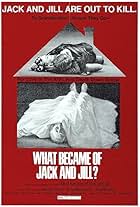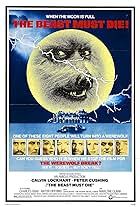Amicus Productions Ranked
"Few companies found such malevolent horror in the quotidian of domestic life as Amicus Productions. Far from the castles and dark woods of other horror films made in the 1960 and ’70s, Amicus instead looked to living rooms, basements and kitchens for their particularly grimy but enjoyable form of horror cinema. With the restoration of two of their classic films, Peter Duffell’s The House That Dripped Blood and Roy Ward Baker’s Asylum, now is the perfect time to revisit these unusual, entertaining and often no-holds-barred horrors, noted for their balance of witty black humour and genuinely macabre punch-lines.
Amicus was the brainchild of Milton Subotsky and Max Rosenberg. Though originally making teen musicals, they soon saw the potential of horror thanks to their eventual rivals, Hammer Film. In many ways, Amicus came to embody another side of horror that had increasingly shrunk thanks to Hammer’s success. Whereas the latter devoted the majority (though not all) of their output to Gothic period horror, Amicus focussed on the bizarre modern day, producing films that celebrated the latest fashions and quirks of British life with such relish that they feel themselves like period pieces today. Although the studio sometimes made single narrative films like The Skull and I, Monster, Amicus became renowned for its portmanteau features, foreshadowed by the Ealing film, Dead of Night, and often detailing several stories told by people connected by a singular location. Whether locked in vaults or asylums, trying to investigate mysterious houses or fairgrounds, or even simply passengers in the same compartment on a train journey, short horror stories seemed aplenty in the Amicus universe, with everyone possessing their own ghastly tale to tell." Ranked from best to worst from what I have seen.
Amicus was the brainchild of Milton Subotsky and Max Rosenberg. Though originally making teen musicals, they soon saw the potential of horror thanks to their eventual rivals, Hammer Film. In many ways, Amicus came to embody another side of horror that had increasingly shrunk thanks to Hammer’s success. Whereas the latter devoted the majority (though not all) of their output to Gothic period horror, Amicus focussed on the bizarre modern day, producing films that celebrated the latest fashions and quirks of British life with such relish that they feel themselves like period pieces today. Although the studio sometimes made single narrative films like The Skull and I, Monster, Amicus became renowned for its portmanteau features, foreshadowed by the Ealing film, Dead of Night, and often detailing several stories told by people connected by a singular location. Whether locked in vaults or asylums, trying to investigate mysterious houses or fairgrounds, or even simply passengers in the same compartment on a train journey, short horror stories seemed aplenty in the Amicus universe, with everyone possessing their own ghastly tale to tell." Ranked from best to worst from what I have seen.
List activity
57 views
• 13 this weekCreate a new list
List your movie, TV & celebrity picks.
- 15 titles














